- April Starinsky
AdventHealth Orlando is the first hospital to use the Vivistim® Paired VNS™ System to help 50 patients.
This transformative device -- designed to aid stroke survivors in their rehabilitation journey -- has shown remarkable success in improving hand and arm function.
Jessica Pflanz was celebrating her 30th birthday when she had a stroke. She’s the 25th patient to receive a Vivistim implant at AdventHealth Orlando and said it is helping her grow more confident and has even allowed her to return to kayaking and paddleboarding.
"I was always very athletic," Pflanz said. "Thanks to this treatment, I’ve gotten a lot of my movement back. I celebrated the wins and every time I was able to do something I couldn’t do before (using Vivistim)."
The Vivistim System uses vagus nerve stimulation (VNS) paired with high repetition and intense occupational therapy provided at AdventHealth Sports Medicine and Rehab to enhance the treatment’s effectiveness.
The device is implanted under the skin in the upper left chest area and connects to the vagus nerve, which plays a crucial role in controlling involuntary body functions.
During rehabilitation therapy, a wireless transmitter signals the Vivistim device to deliver gentle pulses while the patient performs specific tasks, helping to create or strengthen neural connections.
"It gives someone who’s had a stroke a second chance at a good quality of life -- something that’s very important in medicine," said Ravi H. Gandhi, MD, medical director of the AdventHealth Neuroscience Institute and partner at Orlando Neurosurgery, who led the team in being the first to bring this breakthrough device to stroke survivors in the Southeast. “Vivistim focuses on allowing patients to regain their functional independence.”
Once patients have graduated from the intensive program with the occupational therapists at AdventHealth, they are then able to continue their progress through a self-directed, home-based therapy program using a magnet to activate the Vivistim system daily.
This leading-edge medical technology can offer patients the chance to improve their recovery even after significant time has passed.
Recent News
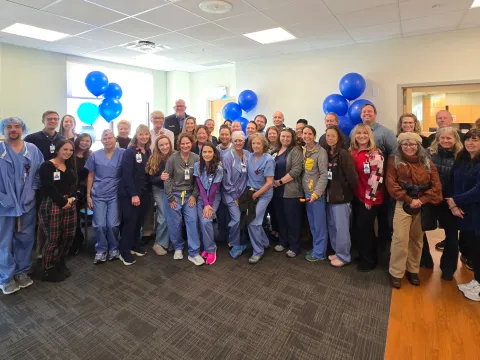
A new chapter begins: AdventHealth Avista opens its on-campus surgery center
This milestone marks a meaningful new chapter for a team whose history stretches back more than two decades.
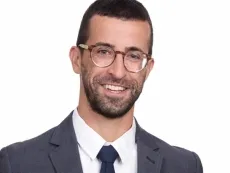
AdventHealth Porter Performs Rare, Complex Robotic Kidney Cancer Surgery
AdventHealth Porter has reached an extraordinary milestone in surgical innovation, completing what is believed to be the first robotic left radical nephrectomy with inferior vena cava (IVC)...
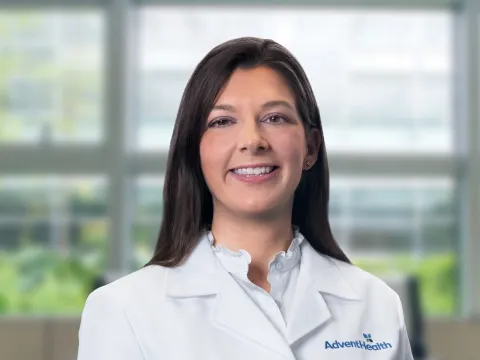
Amanda Robinson, DO, joins AdventHealth Medical Group Family Medicine, Internal Medicine & Pediatrics at Curtis Parkway
AdventHealth is pleased to announce that Amanda Robinson, DO, has joined AdventHealth Medical Group Family Medicine, Internal Medicine & Pediatrics at Curtis Parkway.
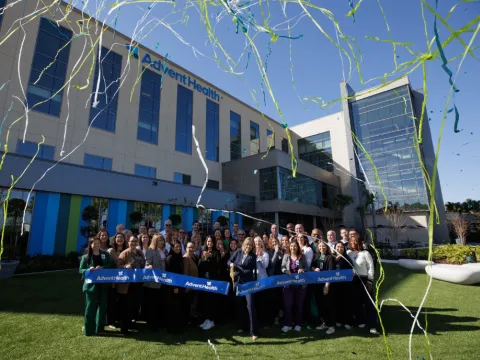
New hospital brings world-class, whole-person care to Minneola
AdventHealth Minneola will bring nationally recognized care close to home in South Lake County.
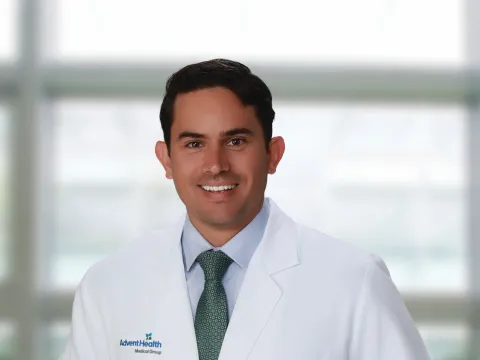
New surgeon expands local access to advanced colorectal care in Volusia County
Dr. Mark Heimberger joins AdventHealth as part of its continued investment in bringing minimally invasive and robotic colorectal treatment options to the region’s growing community.
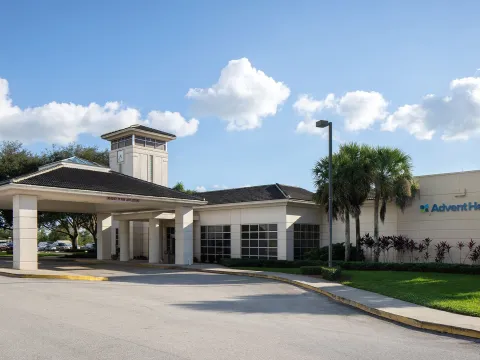
AdventHealth Lake Placid launches Low Dose Lung Screening CT program to help detect cancer early
AdventHealth Lake Placid has launched a new Low Dose Lung Screening CT program, bringing this life-saving service closer to home for people who live in and around Lake Placid.

Delivering on the mission: AdventHealth Supply Chain and Business Services' impact is part of every patient story
Every day, more than 1,500 Supply Chain and Business Services team members work behind the scenes with more than 3,000 suppliers to support how AdventHealth patients receive care.
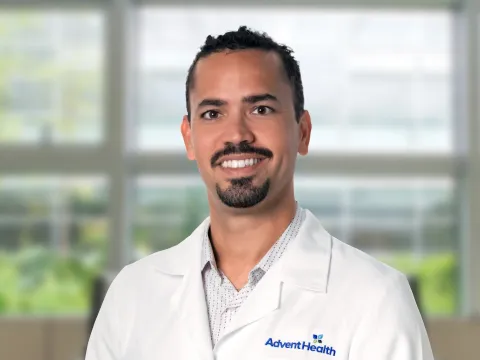
Albit Paoli, MD joins AdventHealth Medical Group Orthopedics & Sports Medicine
AdventHealth is pleased to announce that Albit Paoli, MD, has joined AdventHealth Medical Group Orthopedics & Sports Medicine at Calhoun and AdventHealth Medical Group Orthopedics & Sports Medicine at...
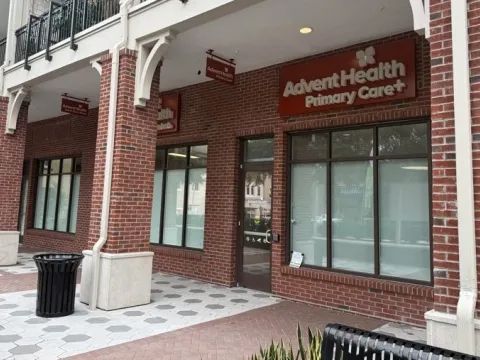
AdventHealth expands access to primary care in the heart of DeLand
AdventHealth has opened a new Primary Care+ location in the heart of downtown DeLand, giving residents a simple way to get everyday care close to where life happens. The primary care practice offers...
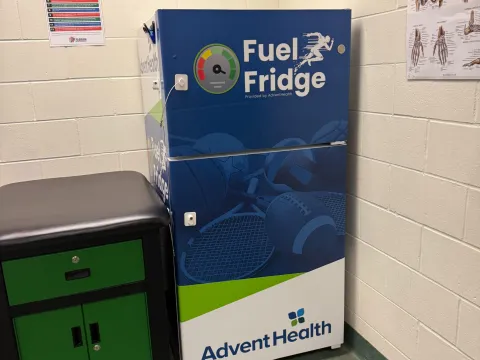
Fueling healthy futures for Flagler’s student athletes
Early practices, full class schedules, and evening games can push student athletes to their limits, and proper nutrition is essential to keeping them strong and focused. AdventHealth has introduced...
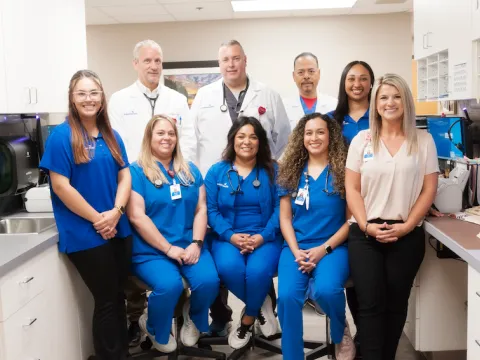
AHMG Cardiology at Dalton earns nuclear cardiology accreditation
AdventHealth Medical Group Cardiology at Dalton has earned a three-year accreditation in Nuclear Cardiology from the Intersocietal Accreditation Commission (IAC).
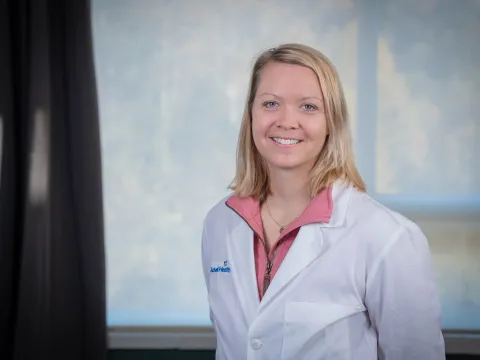
New orthopedic provider expands access to compassionate care for families in WNC
AdventHealth is welcoming Beth Mitchell, PA-C, an experienced orthopedic provider bringing warm, whole-person care to patients across Haywood County and the surrounding Western North Carolina region.

